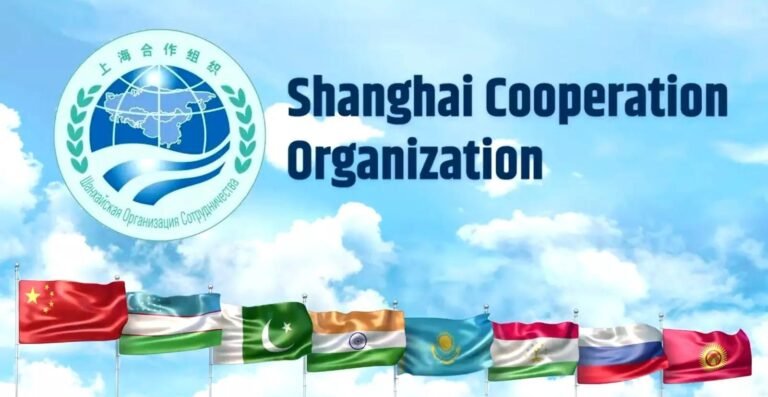The Shanghai Cooperation Organisation is a key regional alliance that brings together countries from Eurasia to work on security, economic, and political cooperation. Founded in 2001, the group has become an important platform for promoting peace and development among its member states. The organisation originated from the Shanghai Five, which was a smaller group formed in 1996 by China, Russia, Kazakhstan, Kyrgyzstan, and Tajikistan to resolve border issues and build trust. Uzbekistan joined in 2001, leading to the creation of the Shanghai Cooperation Organisation as it is known today.
The SCO currently includes eight full member states: China, Russia, Kazakhstan, Kyrgyzstan, Tajikistan, Uzbekistan, India, and Pakistan. India and Pakistan became full members in 2017, marking a significant expansion that increased the group’s geopolitical influence. Alongside full members, the organisation also has observer states and dialogue partners, which participate in some activities but do not have full membership rights.
One of the primary goals of the Shanghai Cooperation Organisation is security cooperation. The member countries work closely to combat terrorism, separatism, and extremism, often called the “three evils.” The organisation coordinates joint military exercises and intelligence sharing to strengthen regional safety. These efforts are especially important given the complex security challenges in Central Asia and neighboring regions, including drug trafficking and border conflicts. The SCO also serves as a counterbalance to Western-led alliances, particularly NATO, by offering an alternative platform for large countries like China and Russia to promote stability on their own terms.
Political cooperation is another major focus of the SCO. The organisation encourages diplomatic dialogue and mutual trust among member states. It provides a venue for countries with diverse political systems to come together and work toward resolving conflicts peacefully. This is crucial in a region marked by historical tensions and differing interests. While the SCO does not always take strong stances on every issue, it plays a role in easing regional disputes and fostering collaboration.
Economic cooperation is also an important area for the Shanghai Cooperation Organisation. The group promotes trade, investment, and infrastructure development to boost growth among its members. This includes support for connectivity projects that link member countries, which can improve transportation and trade routes. The organisation’s economic work aligns with broader initiatives like China’s Belt and Road Initiative, which aims to create new trade networks across Eurasia. By working together on economic projects, SCO members seek to strengthen their economies and reduce dependence on Western markets.
Cultural and scientific exchange is another dimension of the SCO’s activities. The organisation promotes education, cultural programs, and scientific collaboration to increase understanding and friendship among member states. These efforts help build a sense of community in a region with many languages, cultures, and traditions.
The Shanghai Cooperation Organisation faces challenges due to the diversity of its members. Differences in political systems, interests, and foreign policies sometimes slow deeper integration. Reaching consensus on complex issues can be difficult, limiting the organisation’s ability to act decisively. However, its inclusive approach allows it to maintain a platform where member states can engage without losing their independence.
In recent years, the SCO has increased its focus on issues like cybersecurity and counterterrorism. The organisation has also played a diplomatic role in managing regional tensions, including those related to Afghanistan and Iran. Its expanded membership with India and Pakistan has added new dynamics and increased the importance of its meetings and summits.
The Shanghai Cooperation Organisation continues to evolve as a major player in Eurasian affairs. By emphasizing security, political dialogue, economic development, and cultural ties, it offers its members a way to work together on common challenges. While it does not seek confrontation with Western powers, it represents an alternative approach to regional cooperation led by countries that want to shape their future on their own terms. The organisation’s growing role highlights the shifting balance of global power and the importance of multilateral partnerships in today’s complex world.







